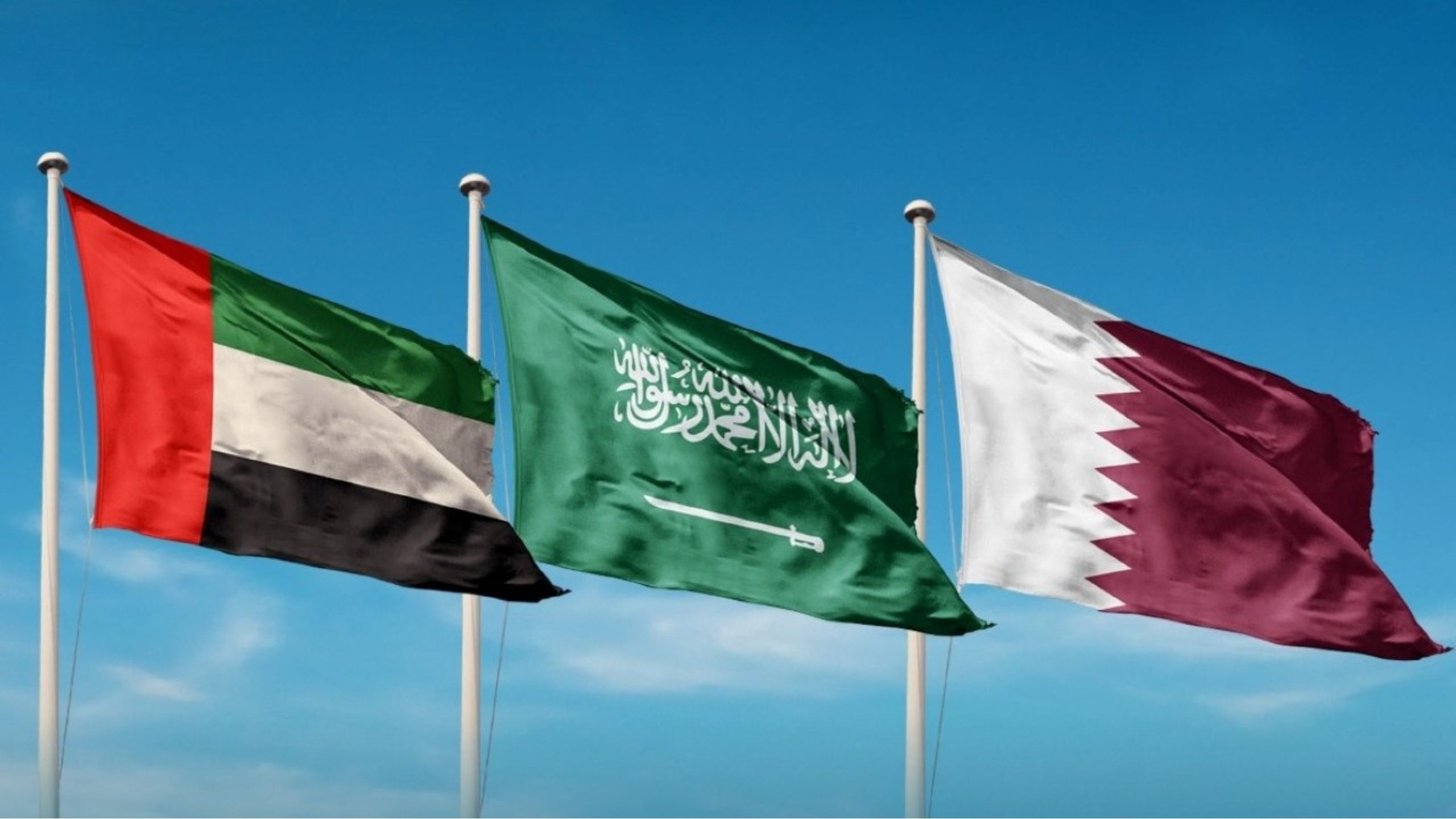
24 Oct GCC Market Expansion: How to Scale from UAE to KSA and Qatar
The Gulf Cooperation Council (GCC) region has become one of the most dynamic economic zones in the world, driven by innovation, diversification, and global investment. Among its member countries, the UAE, Saudi Arabia (KSA), and Qatar stand out as the top destinations for business growth — each offering strategic advantages, government support, and access to a high-spending consumer base.
For companies already operating successfully in the UAE, expanding into neighboring GCC markets like KSA and Qatar is a natural next step. However, scaling across borders in the Gulf requires strategic planning, local compliance, and a deep understanding of each country’s business environment.
This article by GCC Solutions explains how to effectively expand your business from the UAE to Saudi Arabia and Qatar in 2025, highlighting key entry strategies, legal frameworks, and growth opportunities.
1. Why Expand Beyond the UAE?
The UAE is widely recognized as the regional headquarters for international business operations. Its world-class infrastructure, tax incentives, and global connectivity make it the ideal launchpad for GCC-wide expansion.
However, while the UAE provides access to investors and logistics, neighboring markets like Saudi Arabia and Qataroffer larger populations, government-backed projects, and emerging opportunities in technology, construction, renewable energy, and tourism.
Expanding into these markets enables companies to:
- Tap into a combined GCC GDP exceeding $2 trillion.
- Diversify revenue streams across multiple economies.
- Access government tenders and megaprojects under Vision 2030 (KSA) and National Vision 2030 (Qatar).
- Strengthen regional presence for long-term competitiveness.
Step 1: Understanding Regional Market Dynamics
Before expanding, it’s essential to analyze the economic, regulatory, and cultural landscape of each market.
Saudi Arabia (KSA)
- The largest economy in the Middle East and North Africa (MENA).
- Driven by Vision 2030, focused on diversifying away from oil dependency.
- Key growth sectors: energy, logistics, retail, e-commerce, construction, tourism, and technology.
- Large population of over 35 million consumers with increasing purchasing power.
Qatar
- One of the world’s wealthiest countries per capita.
- Strong focus on sustainable development under Qatar National Vision 2030.
- High demand for services in construction, finance, IT, and renewable energy.
- Strategic logistics hub connecting Asia, Africa, and Europe.
Both countries offer strong incentives for foreign investors but differ in their company setup structures, tax regulations, and market entry requirements.
Step 2: Choose the Right Market Entry Strategy
Businesses expanding from the UAE to other GCC markets can select one of several entry models depending on their goals and investment size.
1. Branch Office Setup
A branch allows a UAE company to operate directly under its existing brand name in KSA or Qatar. It is ideal for service-based industries such as consulting, engineering, and IT.
- In Saudi Arabia, a branch requires a license from the Ministry of Investment (MISA).
- In Qatar, it requires registration under the Ministry of Commerce and Industry (MoCI).
2. Subsidiary or LLC
Establishing a local company ensures greater operational flexibility and eligibility for local contracts.
- Both KSA and Qatar allow 100% foreign ownership in most sectors.
- LLCs are the preferred structure for trading, contracting, and retail businesses.
3. Joint Venture (JV)
A strategic partnership with a local entity or investor can facilitate smoother entry into government or regulated industries. JVs also help in understanding local business practices and securing regulatory support.
4. Freezone Entity
Both countries offer Freezones for foreign investors — KAEC and Riyadh’s Digital City in KSA, and Qatar Free Zones Authority (QFZA) in Doha.
These zones provide 100% foreign ownership, tax exemptions, and simplified licensing, making them ideal for international operations.
Step 3: Licensing and Regulatory Requirements
Saudi Arabia
Foreign investors must apply for a MISA investment license, followed by registration with the Ministry of Commerce (MoC) to obtain a Commercial Registration (CR).
Additional steps include:
- Registering with ZATCA for taxation.
- Joining the Chamber of Commerce.
- Opening a corporate bank account.
- Applying for residency visas through Qiwa and Muqeem portals.
Qatar
Investors can register through the Qatar Business Portal or QFZA (for Freezone companies).
Essential requirements include:
- Trade name reservation and Articles of Association.
- Commercial Registration from MoCI.
- Chamber of Commerce membership.
- Bank account and tax registration.
Both countries have streamlined digital processes to encourage foreign investment, reducing bureaucracy and setup times significantly.
Step 4: Adapting to Local Regulations and Tax Policies
Taxation in KSA
- 20% corporate income tax on foreign-owned entities.
- 15% VAT on goods and services.
- Zakat (2.5%) applies to Saudi/GCC-owned shares.
Taxation in Qatar
- 10% corporate income tax for foreign-owned companies.
- 5% customs duty on most imports.
- No personal income tax.
UAE businesses expanding regionally must also comply with economic substance and transfer pricing regulationswhere applicable. Working with a professional consultancy ensures proper structuring to avoid double taxation.
Step 5: Hiring, Visas, and Workforce Mobility
Both KSA and Qatar have nationalization programs that prioritize local employment but also welcome skilled expatriates in specialized sectors.
- In Saudi Arabia, the Nitaqat program defines Saudization quotas by industry.
- In Qatar, work visas are issued under company sponsorship, with streamlined digital approval systems.
Businesses should prepare a workforce plan early, ensuring alignment with immigration laws, visa quotas, and labor contracts.
Step 6: Leveraging Free Trade and GCC Integration
One of the biggest advantages of expanding within the Gulf is the GCC Unified Market, which allows smoother trade and movement of goods and services among member states.
UAE-based businesses benefit from:
- No customs duties on most intra-GCC goods.
- Recognition of professional licenses and standards.
- Unified investment policies under GCC agreements.
This integration significantly reduces trade barriers, helping UAE companies scale quickly across the region.
Step 7: Cultural and Operational Considerations
While the UAE, KSA, and Qatar share similar business cultures rooted in Islamic values and Arab traditions, local nuances matter. Business relationships in the Gulf are built on trust, respect, and long-term engagement.
Understanding cultural etiquette, decision-making hierarchies, and negotiation styles is essential to building credibility and partnerships. Bilingual marketing, localized branding, and alignment with national visions (Vision 2030, Vision 2035, etc.) also enhance market acceptance.
2. Benefits of Expanding from UAE to KSA and Qatar
Regional Scale: Access to three of the GCC’s largest and most dynamic economies.
Tax Optimization: Benefit from zero personal income tax and favorable corporate tax regimes.
Diversified Opportunities: Participation in trillion-dollar projects such as NEOM (Saudi Arabia) and Lusail City (Qatar).
Enhanced Brand Reputation: Operating across multiple GCC countries establishes a strong regional presence.
Investment Security: Robust legal systems protect foreign investors and intellectual property rights.
How GCC Solutions Can Help
Expanding into new markets requires careful navigation of legal frameworks, licensing, and compliance procedures. GCC Solutions provides comprehensive support for UAE-based companies looking to expand into Saudi Arabia and Qatar, including:
- Market entry strategy and feasibility analysis.
- Business licensing and registration.
- MISA and QFZA approvals.
- Tax, Zakat, and VAT compliance.
- Corporate bank account setup and visa processing.
With years of experience in multi-country company formation, our team ensures your GCC expansion is seamless, compliant, and strategically structured for growth.




Sorry, the comment form is closed at this time.